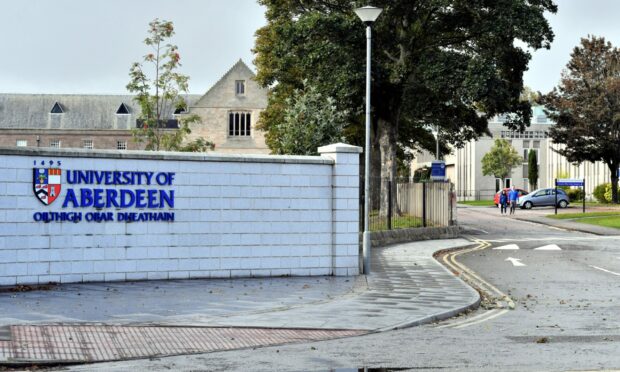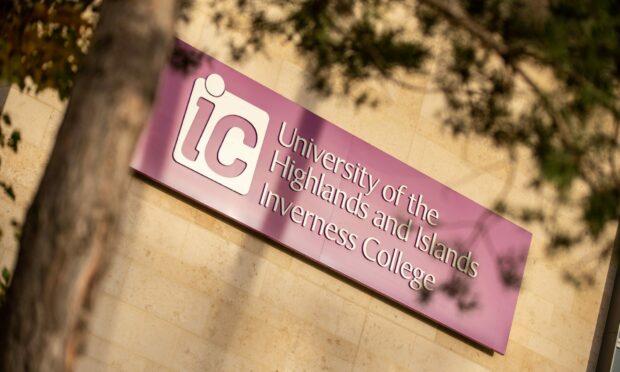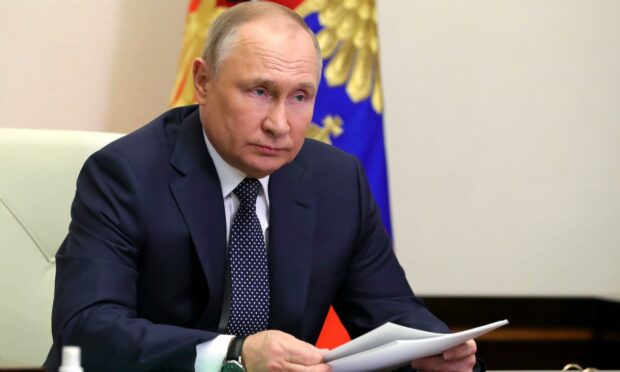The Russian invasion of Ukraine has dealt a blow to investments linked to Aberdeen University and the University of the Highlands and Islands, we can reveal.
Sanctions by the US, UK and other western powers have sent the value of Russian assets plummeting.
It previously emerged the conflict had wiped millions of pounds off the value of Scottish council pension fund investments in Russia, including the Highland scheme.
Now we can reveal Aberdeen University also had pension fund investments tied to Russia.
The University of the Highlands and Islands (UHI) has an investment portfolio with some indirect exposure.
Staff at Aberdeen University use two main pension schemes – the University of Aberdeen Superannuation and Life Assurance Scheme (UASLAS) and the Universities Superannuation Scheme (USS).
The wider and national USS scheme has already said that about 0.5% of its £90bn assets were linked to Russia.
Aberdeen University has confirmed the UASLAS scheme also has exposure.
The majority of the £181m fund is overseen by Legal and General Investment Management, which said earlier this month that the exposure to Russian investments of the UASLAS diversified funds was “less than 0.9%”.
The value of these Russia-linked investments has not been confirmed, but is thought to have been worth hundreds of thousands of pounds.
It predominantly relates to equity investments, which account for about £43m of the fund.
Yesterday, Aberdeen University said the exposure to Russia was now in the region of 0.02%.

As well as Legal and General, the other UASLAS fund manager is Ninety One.
The extent of its Russian investment exposure is unknown in relation to Aberdeen University.
However, its chairman, Gareth Penny, controversially held the same position at Russian metals giant Norilsk Nickel until last month.
Aberdeen suspends Russia links
Aberdeen University has recently suspended a “very small number” of research-related bilateral links with Russian institutions
“We feel it is important that the university takes this action in light of the ongoing situation in Ukraine, as we offer the country and its people our unqualified support and solidarity,” it said.
Robert Gordon University said its has no Russia-linked investments.
UHI, meanwhile, said its staff were offered two workplace pension schemes depending upon the grade of their role – USS or the local government pension scheme.
In addition, it said it had “a modest investment portfolio” that is managed by Brewin Dolphin in accordance with an ethical investment policy.

“Our portfolio managers have recently confirmed that our investments have no direct exposure to Russian companies, however there is a minimal amount of indirect exposure,” it said.
The university said the funds currently held with exposure to Russian securities were Fidelity Emerging Markets, which at the latest available valuation had 7.4% of its holdings invested in Russian assets, as well as Jupiter Strategic Bond, with exposure of around 1%, and HSBC Global Corporate Bond Index, with exposure of 0.06%.
It means the overall exposure of the portfolio is below 0.1%.
The university said: “We have confidence that the management teams of the companies and funds in which we are invested will act responsibly in relation to any relevant exposure and again, we have already seen companies taking significant steps to reduce exposure to the Russian economy in recent weeks.”

